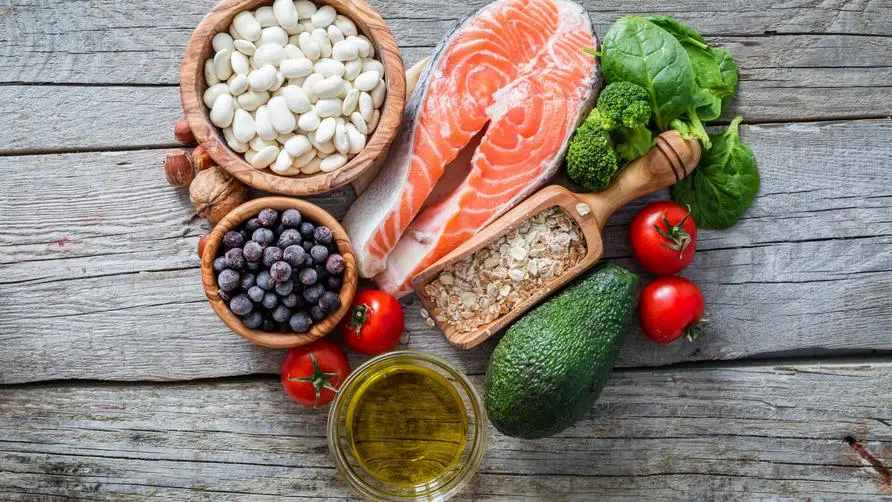Is vitamin D not enough to increase personal immunity? Pediatric neurologist reveals checklist for "boosting immunity"

In addition to the relatively passive measures that the government has been promoting such as washing hands more frequently, going out less often in crowded indoor places, avoiding touching eyes, mouth and nose, and wearing masks, what other methods can actually actively improve personal immunity and defeat pathogenic bacteria?
1. Smoking and second-hand smoke are the enemies of health, and the immune system is also affected.
The well-known health problems caused by smoking include chronic obstructive pulmonary disease (COPD), asthma, cardiovascular disease, stroke and various others. However, in recent years, more and more evidence has shown that smoking can also damage innate immunity and adaptive immunity, causing the immune system to weaken or overreact.
2. To enhance antibodies, five fruits and vegetables a day are the most basic.
Eating at least five servings of fruits and vegetables a day can significantly enhance the body’s antibody response. The so-called five fruits and vegetables a day means eating at least three servings of vegetables and two servings of fruits every day, for a total of five servings of fruits and vegetables.
One serving of vegetables is about the size of a child’s fist of various cooked vegetables, a total of three servings of vegetables per day; one serving of fruit is equivalent to a variety of fruits the size of a fist, which is two servings of fruit per day.
3. Develop regular exercise and stimulate growth hormone secretion at the same time
Regular exercise can delay the aging of the immune system and enhance immunity. However, you must remember to proceed step by step and slowly increase the intensity and time of exercise, otherwise overexertion may lead to infection.
The Centers for Disease Control and Prevention (CDC) believes that children and adolescents need at least 60 minutes or more of physical activity every day. Exercise itself, like sleep, can stimulate the secretion of growth hormone and make children grow taller.
In addition, when exercising, you still need to pay attention to basic protective measures, such as: washing hands before and after exercise, reducing or not exercising when you feel unwell, being careful not to exercise with people with cold symptoms, and wiping fitness equipment with alcohol before using it.
4. Maintain an appropriate weight. Being too thin, overweight or too fat is harmful to your health.
According to experiments, obesity can impair the function of T cells in immune cells, leading to higher concentrations of influenza viruses in the lungs, more severe pneumonia, and higher mortality.
The World Health Organization recommends measuring obesity by Body Mass Index (BMI), which is calculated by dividing weight in kilograms by height in meters squared. Being too thin, overweight or too fat is harmful to your health
5. Children should absolutely avoid drinking, and adults should drink in moderation.
Children and teenagers should absolutely avoid drinking alcohol because they have insufficient alcohol dehydrogenase (alcohol dehydrogenase) to metabolize alcohol! However, if adults have a drinking habit, moderate drinking is beneficial to humoral immunity and cellular immunity; even the antioxidants in red wine can protect immune cells from damage.
The so-called appropriate drinking means that for the average adult male, it is no more than two standard drinks a day; that is, it is approximately equivalent to 720 ml of beer with an alcohol content of 5%, or 200 ml of 12% red wine, or 90 ml of 40% spirits. ; Generally, the appropriate amount of alcohol for adult women should be reduced by half.
However, if you drink alcohol, you will have flushed face, nausea, headache, and general malaise. Even a blood test confirms that you have the ALDH2 (aldehyde dehydrogenase) allele. It is recommended to avoid any alcohol intake completely to maintain your health. healthy.
6. Sleep and body immunity interact with each other and must be sufficient.
Sleep and immunity interact with each other. Not only does sleep affect innate immunity and acquired immunity, but immune status also affects sleep quality. Good sleep can affect many immune indicators, reduce the risk of infection, and also improve the prognosis of infection.
7. Physical and mental stress relief is important
Of course children and teenagers also experience psychological stress! Large-scale integrated analysis shows that chronic psychological stress can reduce humoral immunity and cellular immunity, making people susceptible to infectious diseases. Therefore, learning how to adjust the body and mind and relieve stress is one of the important topics for all adults and children.
8. Laughing often is a good way to relieve stress
Laughing often can not only relieve stress, but also increase the number of natural killer cells (NK cells) in the body. Natural killer cells are responsible for non-specific defense and can kill virus-infected cells.
9. Drinking more water can help the blood transport oxygen and metabolize toxins in the body.
Drinking enough water can help the blood transport enough oxygen to the immune system (including the lymphatic system) so that immune cells can function. Sufficient water can also help body cells and kidneys to accelerate the elimination of metabolic toxins.
10. Eating more mushrooms has been proven to improve immune function
Eating Lentinula edodes (Shiitake Mushrooms) has been proven to increase the production of natural killer cells, immunoglobulin A (IgA), interleukin-4 (IL-4) and other cytokines in the human body. Improve immune function.
11. Drinking chicken soup can strengthen immunity and relieve cold symptoms.
Regardless of whether they are Chinese or foreign, old grandmothers know that when family members feel unwell, simmering a large pot of hot chicken soup at the right time can get rid of colds and wind evils! Research shows that chicken soup can indeed reduce the chemotaxis of neutrophils (Neutrophils chemotaxis) and relieve cold symptoms; and the higher the concentration, the better the effect!
12. Reduce sugar intake to avoid diseases.
It is well known that a high-sugar diet can cause chronic diseases such as diabetes and hyperlipidemia. In addition, experiments show that a high-sugar diet is detrimental to both humoral and cellular immunity and can easily lead to infection and illness!
13. Eat foods high in vitamin D and spend at least fifteen minutes in the sun a day.
Vitamin D is closely related to innate immunity; research shows that the less vitamin D in the body, the higher the chance of catching a cold! Therefore, if you often catch colds, you may want to consider testing whether the amount of vitamin D in your body is sufficient. If you have absorbed enough vitamin D from food, it must be irradiated by ultraviolet B (UVB) from the skin before it can be converted into active vitamin D.
Generally speaking, fifteen minutes of sunshine a day is enough. You can also bask in the sun while exercising outdoors. In addition, foods rich in vitamin D include: sardines, salmon, cheese, egg yolks, soybeans, mushrooms and grains, etc. You can eat more of them.
14. Meditation can indeed affect cellular immunity, inflammation index and aging
Meditation has a long history in the East and has always been thought to improve physical and mental health. But it is only in recent years that there have been randomized controlled trials on meditation, and the results show that it can affect cellular immunity, inflammation index, and even aging.
Further reading





